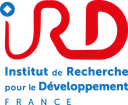X. Durrieu de Madron, C. Guieu, R. Sempéré, P. Conan, D. Cossa, F. D'Ortenzio, C. Estournel, F. Gazeau, C. Rabouille, L. Stemmann, S. Bonnet, F. Diaz, P. Koubbi, O. Radakovitch, M. Babin, M. Baklouti, C. Bancon-Montigny, S. Belviso, N. Bensoussan, B. Bonsang, I. Bouloubassi, C. Brunet, J.-F. Cadiou, F. Carlotti, M. Chami, S. Charmasson, B. Charrière, J. Dachs, D. Doxaran, J.-C. Dutay, F. Elbaz-Poulichet, M. Eléaume, F. Eyrolles, C. Fernandez, S. Fowler, P. Francour, J.C. Gaertner, R. Galzin, S. Gasparini, J.-F. Ghiglione, J.-L. Gonzalez, C. Goyet, L. Guidi, K. Guizien, L.-E. Heimbürger, S.H.M. Jacquet, W.H. Jeffrey, F. Joux, P. Le Hir, K. Leblanc, D. Lefèvre, C. Lejeusne, R. Lemé, M.-D. Loÿe-Pilot, M. Mallet, L. Méjanelle, F. Mélin, C. Mellon, B. Mérigot, P.-L. Merle, C. Migon, W.L. Miller, L. Mortier, B. Mostajir, L. Mousseau, T. Moutin, J. Para, T. Pérez, A. Petrenko, J.-C. Poggiale, L. Prieur, M. Pujo-Pay, P. Pulido-Villena, A.P. Raimbault, C. Rees, J.-F. Ridame, D. Rontani, M.A. Ruiz Pino, V. Sicre, C. Taillandier, T. Tamburini, I. Tanaka, M. Taupier-Letage, P. Tedetti, H. Testor, B. Thébault, F. Thouvenin, J. Touratier, C. Tronczynski, F. Ulses, V. Van Wambeke, S. Vantrepotte, R. Vaz, and Verney (2011)
Marine ecosystems' responses to climatic and anthropogenic forcings in the Mediterranean
Progress In Oceanography, In Press, Corrected Proof.
The semi-enclosed nature of the Mediterranean Sea, together with its smaller inertia due to the relative short residence time of its water masses, make it highly reactive to external forcings, in particular variations of water, energy and matter fluxes at the interfaces. This region, which has been identified as a "hotspot" for climate change, is therefore expected to experience environmental impacts that are considerably greater than those in many other places around the world. These natural pressures interact with the increasing demographic and economic developments occurring heterogeneously in the coastal zone, making the Mediterranean even more sensitive. This review paper aims to provide a review of the state of current functioning and responses of Mediterranean marine biogeochemical cycles and ecosystems with respect to key natural and anthropogenic drivers and to consider the ecosystems' responses to likely changes in physical, chemical and socio-economical forcings induced by global change and by growing anthropogenic pressure at the regional scale. The current knowledge on and expected changes due to single forcing (hydrodynamics, solar radiation, temperature and acidification, chemical contaminants) and combined forcing (nutrient sources and stoichiometry, extreme events) affecting the biogeochemical fluxes and ecosystem functioning are explored. Expected changes in biodiversity resulting from the combined action of the different forcings are proposed. Finally, modeling capabilities and necessity for modeling are presented. A synthesis of our current knowledge of expected changes is proposed, highlighting relevant questions for the future of the Mediterranean ecosystems that are current research priorities for the scientific community. Finally, we discuss how these priorities can be approached by national and international multi-disciplinary research, which should be implemented on several levels, including observational studies and modeling at different temporal and spatial scales.
Actions sur le document










